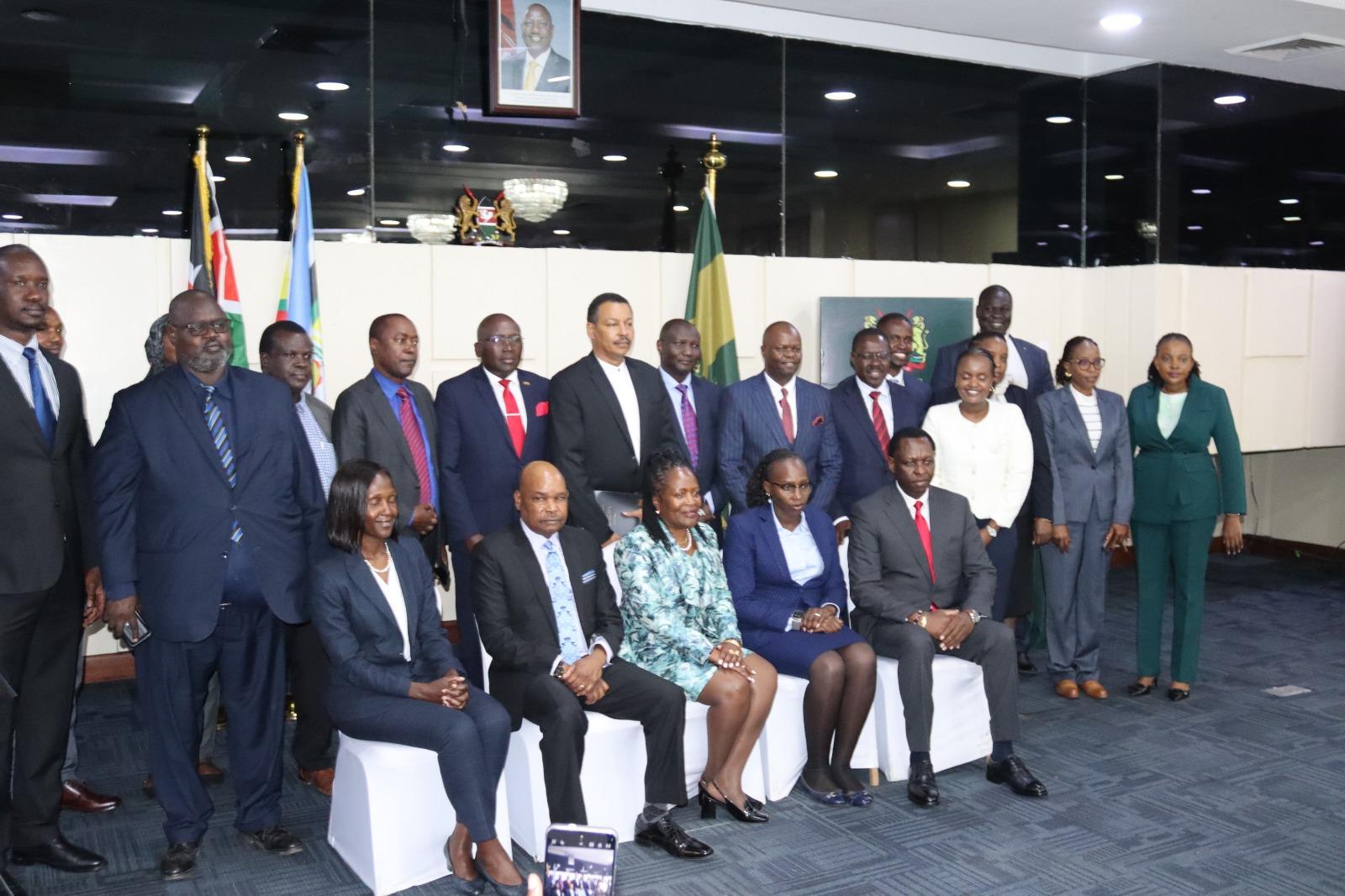Africa-Press – Kenya. Civil society groups are divided on President William Ruto’s Victims of Demonstrations Compensation Panel of Experts, with divergent views on its constitutionality.
The divergent views stem from President Ruto’s August 6 announcement of an Implementation Panel to compensate victims of protest-related deaths dating back to 2017.
On one side are groups that support the panel, which was sworn in on September 4, saying it will be of help to victims, while others argue the panel and its establishment is unconstitutional.
Already, the High Court has suspended the mandate of the panel pending a determination on October 6 following a suit by lawyer Levi Munyeri, who has argued its establishment is in breach of law.
Welcoming the naming of Amnesty International-Kenya executive director Irungu Houghton to the panel, board chairperson Stellar Bosire said compensation is a legal obligation under international human rights law.
“Police abuses, often publicly encouraged and sanctioned by both the Police leadership and the Executive, have left deep scars. Only decisive action by the current administration will restore trust,” Bosire said in a statement.
However, she noted that the compensation must be accompanied by other reparative measures, including taking steps to ensure protests are policed in full compliance with human rights law and standards.
Bosire noted that Amnesty International Kenya urges the Panel to deliver a comprehensive reparations package, including substantial financial compensation, truth-telling, memorials, legal reforms, rehabilitation and guarantees of non-repetition.
International Justice Mission has also supported the panel and criticised those opposed to its work.
IJM Country Director Vincent Chahale on Tuesday said the panel presents an opportunity to ensure victims of police brutality receive justice.
“My thoughts are that if we’re in agreement that victims of police brutality require compensation, then surely, we should be able to resolve how we go about it and who will be involved,” Chahale said during the launch of the Baseline Protection Study Report for 2022–2024.
Chahale noted that with the historical problem of police brutality, the constitution of the compensation panel offers a chance for victims to get compensation. “The debate we’re having now is whether the end justifies the means or the means justifies the end,” he added.
VOCAL Africa, which is led by Hussein Khalid, acknowledged the compensation of victims of public protests as a step forward.
It, however, noted that the government needed to do more to deliver “true justice”.
“The government must prioritize accountability by investigating protest-related killings, prosecuting officers responsible and ending the culture of impunity. All individuals still unlawfully held in police custody should be released without delay,” Vocal Africa said.
Khalid said he support the compensation but added that the panel must ensure reparations, justice and non-recurrence are also guaranteed.
On the other hand, a number of NGOs have also opposed the panel of experts, arguing it is not well grounded in law.
Defenders Coalition, which works towards protection of human rights defenders, has called for the KNHRC to be the one to manage the compensation of victims of atrocities, abuse and violations.
Among the function of KNHCR as provided in Article 59 of the Constitution include to monitor, investigate and report on the observance of human rights in all spheres of life in the Republic, including observance by the national security organs and to receive and investigate complaints about alleged abuses of human rights and take steps to secure appropriate redress where human rights have been violated;
Further, KNHCR, can its own initiative or on the basis of complaints, investigate or research a matter in respect of human rights, and make recommendations to improve the functioning of state organs.
Claris Ogangah, the nominee for the Kenya National Commission on Human Rights chairperson, on Thursday told the National Assembly’s Justice and Legal Affairs Committee that the panel encroaches on the human rights commission’s mandate.
“A bit of the mandate of the task force is encroaching on the mandate of the commission, when I look at their time of their terms of reference, I did not clearly get where they got their mandate from,” Ogangah said.
Various NGOs under the Police Reforms Working Group in Kenya, a coalition of human rights organizations have also expressed concerns over the panel.
While enthusiastic about the government’s commitment to compensate victims of atrocities and the affirmation that funds for such efforts are available, the group in a joint statement said it has reservations about its legality, legitimacy, and independence in undertaking the role. “In particular, we question the process, composition, and overlap with mandates of existing constitutional commissions and legal bodies,” they said in a statement.
They added that the establishment of a time-bound panel of experts amounts to duplication of efforts, wastage of public resources, and executive overreach.
The group consequently called on the government to fully resource the constitutionally mandated agency KNCHR to administer reparations by providing it with the necessary resources and legal backing to undertake this critical task.
The government should ensure that the reparations go beyond monetary compensation and address non-monetary reparations, including accountability and institutional reforms, they said.
The statement was signed by among others Katiba Institute, Kenya Human Rights Commission, The Kenyan Section of International Commission of Jurists (ICJ Kenya), HAKI Africa, Independent Medical Legal Unit, Federation of Women Lawyers (FIDA) Kenya, International Centre for Transitional Justice, Social Justice Centres Working Group, Transparency International – Kenya, Constitution and Reform Education Consortium and Article 19.
For More News And Analysis About Kenya Follow Africa-Press






